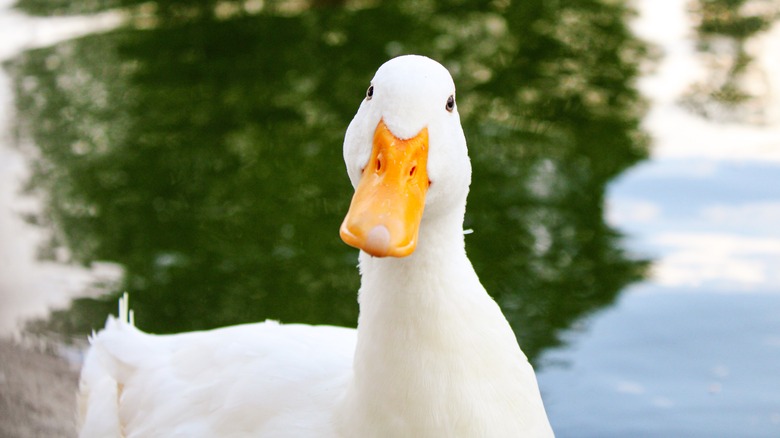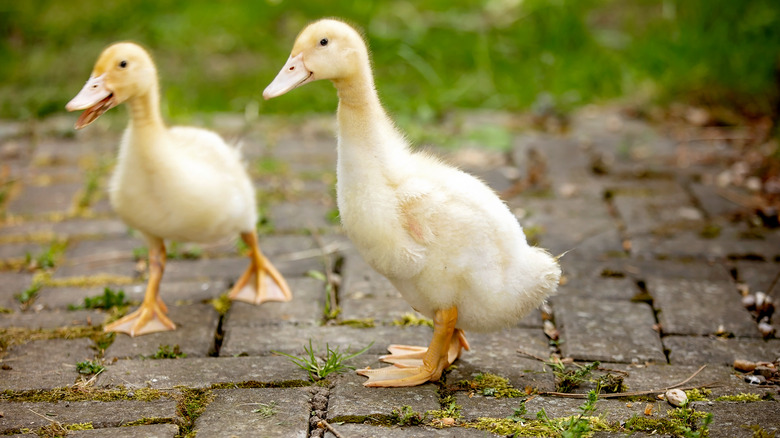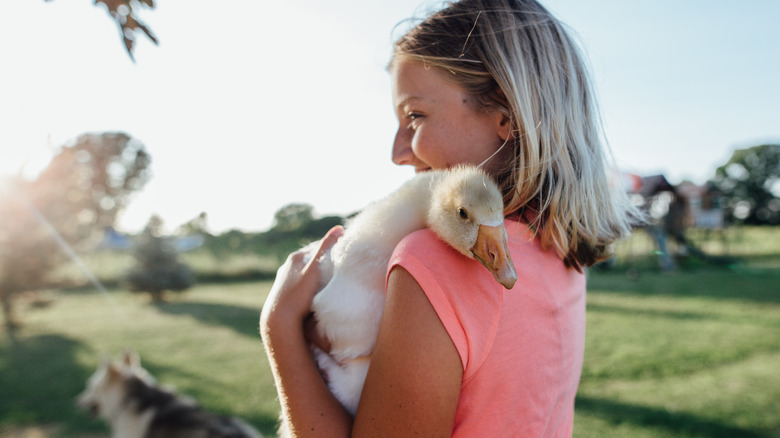Here's Why Pet Ducks Won't Fly Away
If you know someone with a pet duck, or maybe you have a pet duck yourself, you might be curious as to why these birds stay with you instead of using their wings and flying away. As it turns out, most domesticated ducks couldn't fly away even if they wanted to, as they actually aren't able to fly at all. Pet ducks are no different than your pet cat or dog, they've been domesticated and now require humans to care for them as they don't have the skills necessary to survive on their own.
The reason most domesticated ducks cannot fly is due to their body structure. Wild ducks have what are called primary feathers which give them the ability to fly. Domesticated ducks, however, either don't have feathers that are long enough to fly, or they have their primary feathers clipped to keep from flying away. Many pet duckling breeds are also simply too big and heavy to fly, or they don't have the essential muscles required to take flight.
History of domesticated ducks
Domesticated ducks have a rich history that goes way back. It's believed that many breeds of today's domesticated duck are descendants of mallards. Some of the other common domesticated duck breeds are the Muscovy duck, the Mandarin duck, and the wood duck. Pet ducks aren't a recent fad, but rather were domesticated all the way back in 4000 BC, per the University of Wisconsin-Madison. At this time, ducks were domesticated by the Egyptians, Europeans, and Chinese.
Back in the day, domesticated ducks were kept by families as a food source for meat as well as for eggs. Their feathers have also been used as down filling for coats and pillows. Today, many duck owners keep these waterfowl as a source of eggs. Others may keep them simply just for fun, as a duck's behavior makes for an amusing pet. If you are thinking about getting a pet duck, there are some factors you should consider.
What to know before getting a pet duck
Ducks can make great pets, but they do require some work. Since pet ducks can't fly, they are going to need to stay safe and protected from potential predators. If you are considering owning pet ducks, make sure to invest in a fully enclosed coop to keep them safe. Pet ducks should also have access to outside yard space where they can safely roam around. Ducks also produce a lot of waste and require fresh water at all times, so be prepared for that kind of maintenance.
If you decide you want to parent some ducks, you'll also want to figure out which breed is the best fit for you and your lifestyle. If your main goal of having ducks is to produce eggs, there are certain duck breeds that lay more eggs than others. Some ducks, such as the Pekin duck, are a good producer of many resources, including eggs and feathers. Do your research before getting ducks to discover which breed would work best for you. When considering getting a duck, it's important to remember that domesticated ducks can live for 10 to 15 years, according to petMD. So it's key that you are willing to commit to them long term, as they will be counting on you to survive.


